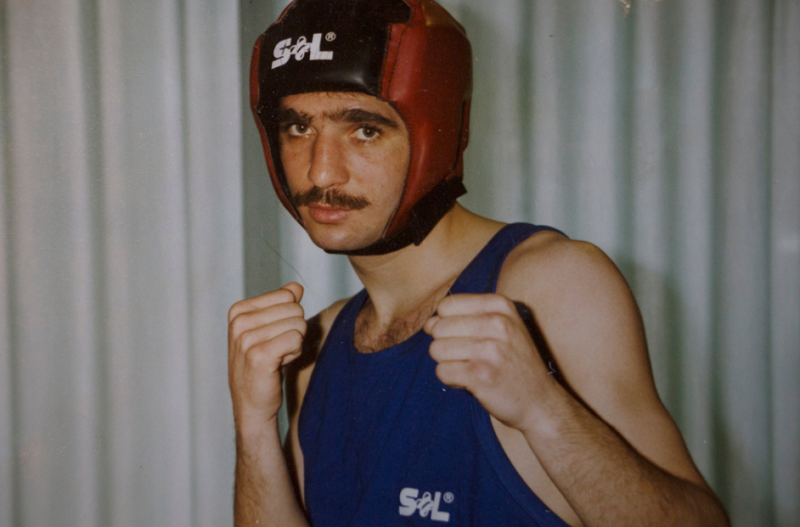Are you looking for an insightful and thought-provoking exploration of political activism? Then look no further than the films of Raoul Peck. This acclaimed filmmaker has dedicated his career to shining a light on the struggles of marginalized communities and inspiring viewers to take action. In this blog post, we’ll delve into some of Peck’s most influential works and examine how they can help us better understand the power of political engagement. Whether you’re a seasoned activist or simply curious about the world around you, there’s something here for everyone. So grab your popcorn and get ready to be inspired!

What is the purpose of Peck’s films?
Peck’s films explore political activism through the lens of personal stories and historical moments. His work has focused on the themes of social justice, human rights, and democracy. Peck’s films have been praised for their ability to humanize political events and inspire viewers to become more engaged in the world around them.
One of Peck’s most well-known films is “The Liberator,” which tells the story of Nelson Mandela from his early years as a freedom fighter to his later years as president of South Africa. The film was critically acclaimed for its accurate depiction of Mandela’s life and itsmessage of nonviolent resistance.
“I Am Not Your Negro” is another Peck film that has drawn attention for its exploration of racism in America. The film follows James Baldwin during his time living in France and writing about American society. Baldwin’s experiences provide an insightful look into the way race affects both individual lives and larger societal structures.
Peck’s films are often used in college classrooms to help students understand the history behind important political events. They are also popular among activists and journalists who want to learn more about how to engage with complex issues ethically and effectively.
What are some of the themes in Peck’s films?
Peck’s films explore themes of political activism, often through the lens of marginalized groups. In “The Son of Saul” (2015), Peck focuses on the Holocaust survivor Saul Auslander, whose son seeks to find him and confront his father’s past. Auslander represents the countless victims of genocide who remain unheard and forgotten. In “I Am Not Your Negro” (2016), Peck examines the life and work of writer James Baldwin, highlighting the ways in which racism persists in America despite efforts by activists like Baldwin to bring attention to it. “The Young Karl Marx” (2007) tells the story of a young Communist revolutionary in 1848 Germany, while “Malcolm X” (1992) provides an intimate portrait of one of history’s most influential black leaders.
Peck’s films are poignant examinations of historical events and figures, as well as contemporary struggles faced by marginalized groups. They provide a unique perspective on political activism and demonstrate why these issues matter to us all.
How has Peck’s filmography changed over time?
In Raoul Peck’s films, activism and politics are central themes. Peck has worked on a variety of political documentaries over the years, covering a wide range of topics from the HIV/AIDS pandemic to the Rwandan Genocide.
Peck’s earlier films tended to focus on individual stories, with a heavy emphasis on human interaction and emotion. His later films, such as “I am not Your Negro” and “The Insurgent”, shift away from personal stories and towards a more general examination of political issues. In these documentaries, Peck often interviews key figures in African politics or world events in order to critically examine their perspectives.
Peck’s work has been praised for its cinematic quality and its ability to explore complex topics in an accessible way. His films have also received criticism for their Mostly positive portrayal of African political leaders
What role does political activism play in Peck’s films?
Most of Peck’s films explore the power of politics and how it can shape individual lives. In “The Voice of Harlem” (1991), a young black man is wrongly convicted of a crime he did not commit and spends years in prison. While in prison, he becomes radicalized and starts a political prisoner movement. The film tells his story as well as that of several other politically active prisoners, including a white college professor who helps organize the movement.
“Zaire” (1995) tells the story of Belgian photojournalist Robert Capa Jr., who travels to Zaire to document the country during its chaotic transition to independence from Belgium. Capa is soon caught up in the violence and chaos caused by competing factions vying for control over the new nation. The film illustrates the tragedy and madness of war through Capa’s experiences as he tries to do what is right, even when that means putting himself in danger.
Peck’s next film, “Kids” (1996), tells the story of three Haitian refugees who are trying to start over in New York City. They face challenges such as poverty, discrimination, and lack of opportunity, but they also find support from their friends and family members back home. The film speaks to themes of immigration and refugees’ search for a new life in a new country, both realities which are becoming more common today with globalization.
“In America” (2002) takes an unflinching look at race relations in America through the lens



